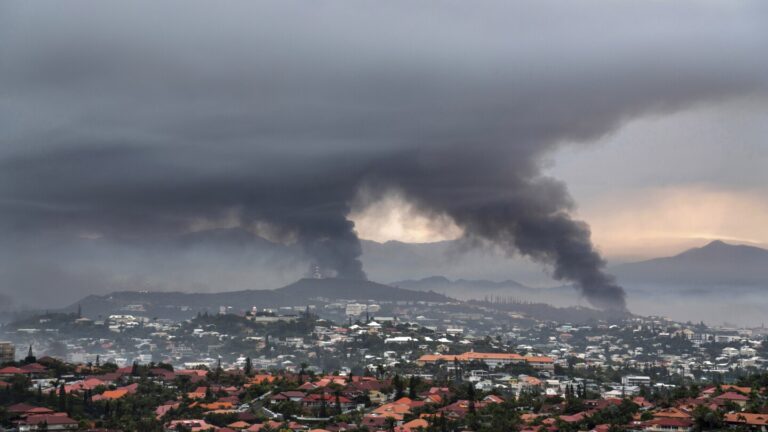PARIS (AP) — French President Emmanuel Macron on Monday emergency French Pacific New Caledonia The presidential office said the move was intended to allow for political dialogue following the unrest which left seven people dead and left a trail of destruction.
The presidency said in a statement that the state of emergency would not be extended “for the time being” and would end at 8pm Paris time on Monday (5am Tuesday New Caledonia time).
The decision was intended to “allow a meeting of different components” of the independence movement, the Kanak National Socialist Liberation Front (FLNKS), and to allow elected officials and other local leaders “in a position to call for” the barricades to be removed to visit the site and meet with protesters, the statement said.
Macron has repeatedly called on leaders on both sides of New Caledonia’s bitter divide – the indigenous Kanak people who want independence and pro-Paris leaders who don’t – to remove the protesters’ barricades.
In a statement, he argued that this was a “prerequisite for concrete and serious negotiations to begin.”
Macron’s actions Traveled to New Caledonia on Thursday..
The statement said an additional 480 military police would arrive in the archipelago “in the coming hours”, bringing the security forces to more than 3,500. Two military police were among the seven killed in the shooting.
Paris declared a state of emergency for at least 12 days from May 15 to give increased police powers. The emergency measures give authorities expanded powers to deal with unrest, including the possibility of placing people deemed a threat to public order under house arrest, expanded powers to search, confiscate weapons and restrict movement, and the possibility of prison sentences for violators.
Unrest erupted this month as the French parliament in Paris debated amending the French constitution to change New Caledonia’s voter rolls.
The leader of New Caledonia’s pro-independence party on Saturday Called on supporters “To maintain mobilization” across France’s Pacific islands and “continue resistance” to efforts by the Paris government to force electoral reforms that the indigenous Kanak people fear will further marginalize them.
Christian Thein, leader of a pro-independence political party known as the Field Action Coordination Unit, addressed supporters and protesters in a video message posted on social media.
In a separate statement, the Kanaks and the Socialist National Liberation Front called on Macron to withdraw the electoral reform bill if France “wants to end the crisis.”
New Caledonia became a French colony under Emperor Napoleon III, Napoleon’s nephew and successor, in 1853. It became an overseas territory after World War II, and in 1957 all Kanak people were granted French citizenship.

